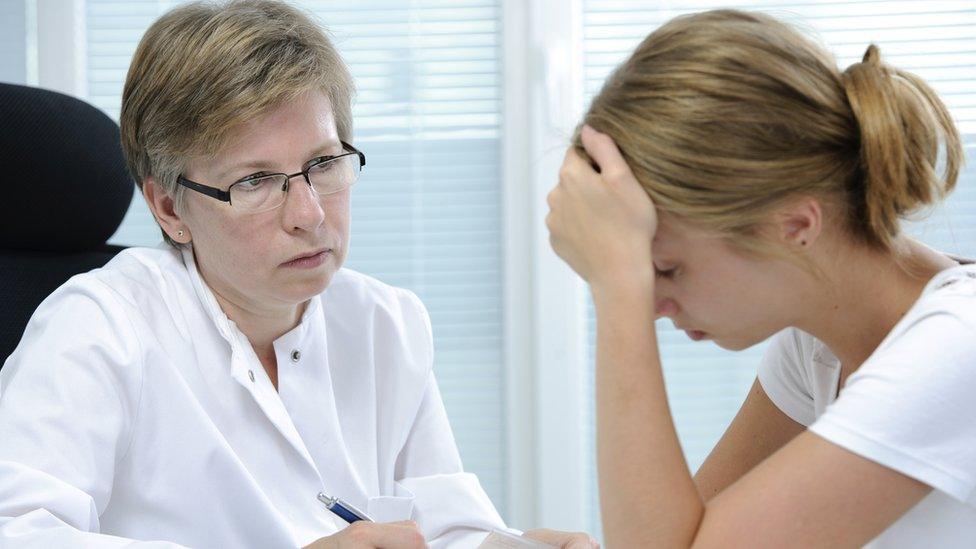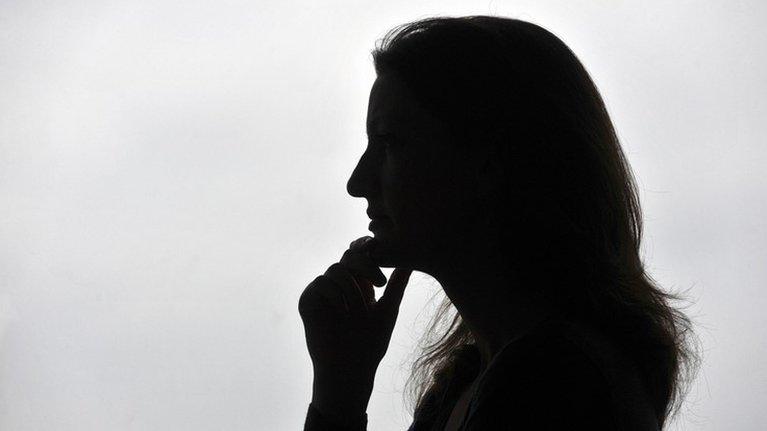Gender identity clinic for young people sees referrals double
- Published

The number of young people referred to England's only gender identity clinic for under-18s has doubled in the past year to nearly 1,400, figures show.
The data also shows that nearly twice as many biological girls than boys were referred to London's Tavistock and Portman NHS Foundation Trust last year.
Consultant clinical psychologist Dr Bernadette Wren said young people now had more freedom to define themselves.
She told BBC Radio 4's Woman's Hour a "social revolution" was happening.
The statistics show that there were a total of 1,398 referrals to the clinic last year, 913 of whom were female and 485 male.
In 2009/10, the first year for which figures are available, there were a total of 97 referrals - 40 were female, 56 were male and there was one referral for counselling for the child of a transsexual parent.
The number of referrals increased by 50% in ever subsequent year until 2015/16, when there was a 100% rise in referrals, from 697 in 2014/15.
'Freedom available'
Asked if boys were being unrepresented in the figures and not getting referred, Dr Polly Carmichael, a fellow consultant clinical psychologist at the clinic, said: "I think the sheer number of young people being referred to the service, a 100% increase this year, it's hard to think there would be a gender difference in terms of who is being referred.
"Particularly because some of the hypothesis in the past around more natal males to natal females being referred was around the way in which the natal male body developed and how that perhaps made it more difficult for them socially if they identified as a female gender. And so I can't see that's changed in any way so it seems unlikely there is under-representation."
Dr Wren said in the past, more boys tended to come forward than girls, because girls found it easier to be "boyish" in what they wore or how they styled their hair, but that society was now more accepting.
She added: "We live in a world where people alter their bodies, surgically or otherwise, and this freedom is available for people as they get older.
"Maybe we just have to be acknowledging that that is a liberty that people have, that these things are possible, technologically, and people will avail themselves of those things.
"It's not really for us to approve or disapprove. What matters is what they make of their lives in the end and whether they lead rewarding lives.
"We're trying to make sure that nothing happens too precipitately. But in the end, we maybe have to see through this social revolution and see how it transpires."

'I felt it was the right thing to do'

Sasha, not their real name, felt they did not fit in (file picture)
Sasha, who was born a girl, was treated at the Tavistock Clinic as a teenager and now refers to themselves as being of non-binary gender.
In their early teenage years, Sasha began to feel it would be easier to become a boy and was eventually referred to the Tavistock Clinic.
"For most of my life, I felt as though I didn't fit in and I was never entirely sure what that was about. But when I began thinking about my sexuality and gender identity, I felt as though there were certain paths that would be more suited to the way I felt.
"I anticipated being a man as feeling happier within myself. That was probably the key thing that drove me forward in terms of pursuing treatment. I felt it the right thing to do on a very instinctual level."
Sasha, not their real name, started hormone blocking treatment at the age of 18, and went onto testosterone a year later. They had a double mastectomy and felt at that stage they had achieved what they wanted to "surgically and physically".
Now, Sasha says they do not fit in "with the traditional binary discourse of being male or being female".
"It's quite a difference as to when I was referred to the Tavistock," added Sasha, but said they did not regret anything that happened.
"The decisions I made were absolutely right for what I needed then. I believe now, on looking back, that there may have been more options to be a bit more flexible in thinking about my gender identity that I didn't quite pick up on at the time," they said.
While Sasha is happy with the physical changes to their body, they said sometimes they wished they had "taken things a little bit slower or waited until I was a little bit older".

She said one of the most difficult things for the clinic was to persuade young people to get on with their lives "without necessarily jumping into physical intervention in ways that we might feel is a bit premature given the state of their thinking".
"That's the tough thing because I think there's a lot of pressure out there to help them believe that physical intervention will sort all of their difficulties out.
"We think that for some young people, physical intervention really, really helps them and is what they were always going to do at some point or other, and I think for others, we feel they need to take more time over it."
'Hard work'
There is also a small number of girls who come forward because they have a "hatred" of the sexual characteristics of the female body, she added.
"I don't think the explanation is that we're suddenly flooded with these young people," she said. "I don't think there are any grounds for saying that.
"It's quite hard work to come to our clinic. We put them through an assessment process and none of these young people are doing this lightly.
"But we do need to consider whether there are some ways in which being male and having a male body is particularly attractive in 2016, the beginning of the 21st Century, whether there are any ways in which the social landscape shapes and influences how people feel about their role in life, their body and how they're going to live in that body for the rest of their lives."
- Published6 April 2016

- Published14 January 2016
